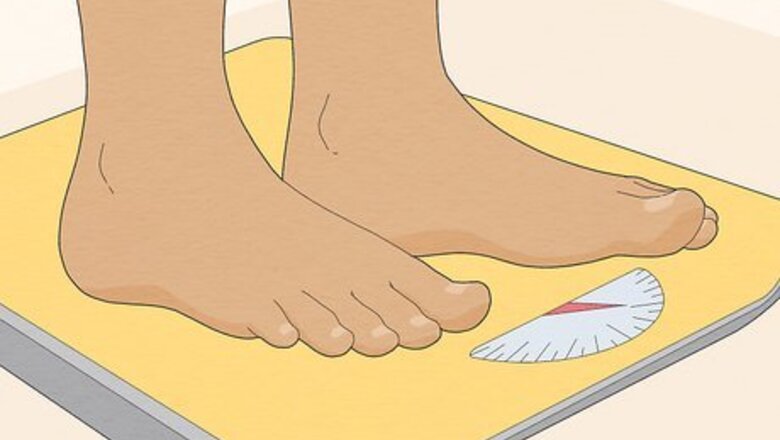
views
Can you use apple cider vinegar to lose weight?
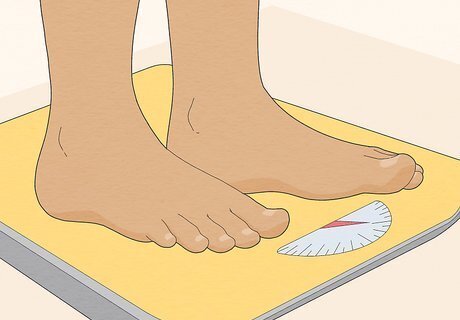
There’s evidence to show you can, but more testing is needed to say for sure. Most of the research on apple cider vinegar’s health and weight loss benefits comes from animal studies. These have been promising so far—many show improved metabolism and fat burning—but more testing in humans is needed. So far, human studies haven’t been conducted with large, controlled groups and the positive effects of apple cider vinegar haven’t been shown across diverse groups of people.

Many claim that apple cider vinegar can curb your appetite. When you consume apple cider vinegar before a meal as a drink or incorporate it into your food, like in a salad dressing, you’ll feel fuller and eat fewer calories. However, studies show that the largest reason for a suppressed appetite seems to be that the vinegar drinkers were slightly nauseated (the grosser they found the vinegar drink, the less they tended to eat). There is some evidence that shows apple cider vinegar slows the rate at which food leaves your stomach—AKA, you’re literally fuller for longer. Increased fullness after a meal can lead to lower blood sugar and insulin levels, too.
Adding Apple Cider Vinegar to Your Diet

Drink 2 tablespoons (30 ml) of apple cider vinegar per day. Dilute apple cider vinegar with water, since straight vinegar can cause burning irritation or nausea. 1 tablespoon (15 ml) of vinegar in 1 cup (237 ml) of water is recommended. Try spreading out your vinegar intake over 2-3 doses throughout the day, preferably before meals.
Benefits of Apple Cider Vinegar

Apple cider vinegar has a number of other positive effects on your body. These effects are more subtle than weight loss, but still contribute to important aspects of your health. Just some of these benefits include: Lowered blood sugar and insulin levels Lower fasting blood sugar Improved PCOS (polycystic ovary syndrome) symptoms Decreased cholesterol levels Lower blood pressure Killing harmful bacteria and viruses (including salmonella and E. coli) Milder acid reflux symptoms
Side Effects of Apple Cider Vinegar

Taking more than 2 tablespoons (30 ml) of vinegar per day can have potentially harmful effects. The main ingredient in vinegar is acid, after all! If you’re unsure how apple cider vinegar will affect you, start by taking 1 teaspoon (4.9 ml) per day to see how you feel. Potential risks of over-consuming include: Nausea (if you take more than 1 tablespoon (15 ml) at a time) Burning and irritation in your mouth and throat (if you drink it undiluted or in large amounts) Enamel erosion on your teeth Negative interaction with supplements or drugs, including diuretics and insulin Lowered or worsening potassium levels Altered insulin levels Irritated ulcer symptoms

Apple cider vinegar may cause or worsen gastroparesis in type 1 diabetics. Gastroparesis is the name for delayed stomach emptying, which is a common complication of type 1 diabetes. It makes predicting how long it takes for your blood sugar to rise after a meal difficult, meaning you’ll have problems determining when to take your insulin. Since apple cider vinegar keeps food in your stomach longer, it could make gastroparesis worse if you take it with meals.
Research on Apple Cider Vinegar
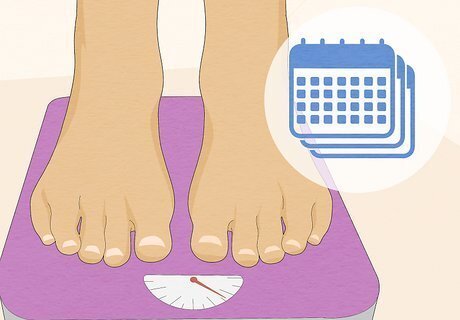
In a Japanese study, people lost weight after drinking vinegar for 12 weeks. The study tested 144 obese adults who drank either 0, 1, or 2 tablespoons (0, 15, or 30 ml) of vinegar per day without changing their normal diet or activity levels. The group that drank 2 tablespoons lost an average of 3.7 pounds (1.7 kg) each, while the group that drank none actually gained 0.9 pounds (0.4 kgs). The results indicate that vinegar can help with fat loss and decrease triglycerides (a type of fat) in your blood. Although the results are encouraging, the study did not study apple cider vinegar specifically and more studies are needed to confirm the results. Most diet and exercise programs result in more weight loss over a 12 week period than this apple cider vinegar regimen.

Animal studies show a variety of health and fat loss benefits. Most have been conducted on lab mice and rats using the active ingredient in apple cider vinegar, acetic acid. Some of the results show that acetic acid: Lowers blood sugar levels and reduces the ratio of insulin to glucagon. Improves metabolism Reduces fat storage (in obese, diabetic rats) Reduces body fat buildup on high-fat diets
More Ways to Add Apple Cider Vinegar to Your Diet

Use apple cider vinegar as an ingredient in a homemade salad dressing. A simple mix of vinegar and olive oil makes for a healthy and tasty dressing, especially with leafy greens, cucumbers, and tomatoes. For a more complex flavor, try adding dijon mustard, honey, and garlic. Splash some apple cider vinegar into your favorite marinades, sauces, or stews for extra flavor.

Use apple cider vinegar to pickle vegetables. Apple cider vinegar is more mellow than other vinegars and its flavor combines nicely with spices. Look for a vinegar (of any kind) that has about 5% acetic acid. The acid in apple cider vinegar kills bacteria that can cause food to go bad.

Add apple cider vinegar to a cup of warm tea. If you’re struggling with the taste, try adding a splash of apple cider vinegar to a cup of tea with honey and lemon.
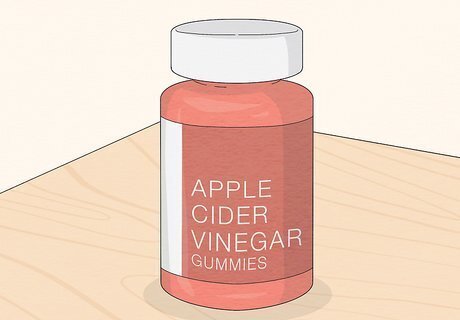
Take an apple cider vinegar supplement or gummy. These can be found over-the-counter in most drug stores. Always take a supplement or pill with water. If a vinegar tablet gets stuck in your throat, it can start to burn.
Other Healthy Uses of Apple Cider Vinegar
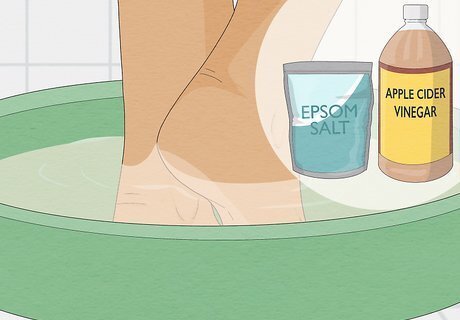
Use apple cider vinegar as a foot soak and deodorizer. Create a foot soak by combining apple cider vinegar with water and Epsom salts. It will help get rid of odor by killing odor-causing bacteria. You can also try wiping your feet or underarms with diluted apple cider vinegar as a deodorant.
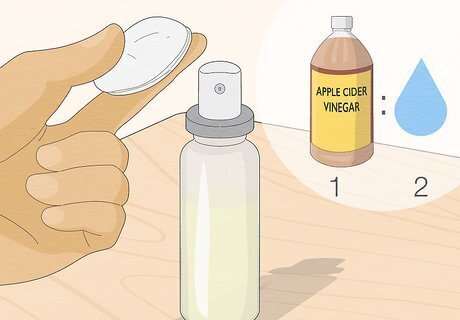
Create a facial toner with apple cider vinegar. Combine 1 part apple cider vinegar and 2 parts water and apply the mixture to your skin with a cotton pad. This mix is rumored to reduce signs of aging and improve skin conditions. If you have sensitive skin, try a more diluted mixture.

Use apple cider vinegar to wash your produce. Apple cider vinegar will clean away more chemical and pesticide residue from your fruits and veggies than water. It will also kill dangerous bacteria on the food.
What is apple cider vinegar?
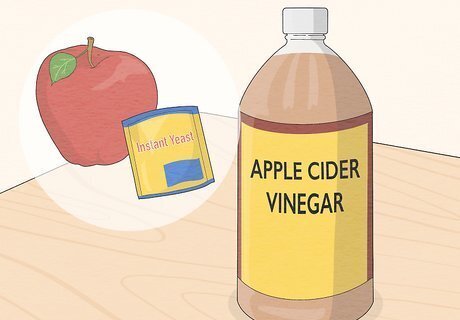
Apple cider vinegar is essentially fermented apple juice. Apple cider vinegar is made by adding yeast to cut or crushed apples, which turns the apples’ sugar into alcohol. Next, friendly bacteria is introduced to ferment the alcohol into acetic (ethanoic) acid. This is the main active ingredient that gives vinegar its sour taste and strong smell. About 5 or 6% of apple cider vinegar is acetic acid (the rest is water and small amounts of other naturally occurring acids). One tablespoon (15ml) of apple cider vinegar is only about 3 calories and has almost no carbs. Undistilled apple cider vinegar contains natural probiotics (to support your gut health and immune system) and antioxidants (to promote healthy cells).
The Bottom Line

Apple cider vinegar can help with weight loss, but it isn’t a magic solution. Any approach to weight loss that doesn’t include reduced calorie intake and increased exercise is not guaranteed to help you lose weight or burn fat. Including apple cider vinegar in your diet may help curb your appetite, but think of it as one small piece in a larger weight loss plan. Scientifically, more evidence is needed to support apple cider vinegar as a reliable, long-term method of losing weight. Apple cider vinegar is safe to consume in small amounts for most people, but has not been approved as a treatment for any health conditions.




















Comments
0 comment